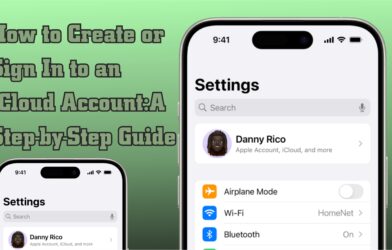As the world embraces remote work even further globally, finding a remote job that makes one work for international companies in any location is no longer too difficult to achieve. Here’s an update on how you go about exploring these opportunities abroad.
1. Understand the industries friendly to remote.
Some industries are far more remote-friendly than others. The following fields have an abundance of remote opportunities:
- Technology and IT: Software development, data science, cybersecurity, and technical support remain among the most in-demand and are a good fit for remote work.
- Creative Roles: Graphic design, video editing, animation, and writing are often field jobs that take nothing more than an internet connection.
- Marketing and Sales: These days, digital marketing, content management, and social media are in high demand for work-from-home jobs.
- Customer Support: Many companies outsource much customer service work to other parts of the world, considering time zones may differ.
- Education and Tutoring: Online teaching, language tutoring, and e-learning content creation are one of the sought-after roles in most global job markets.
2. Leverage Remote Job Platforms
Next comes looking for job opportunities on remote-specific platforms. A few of the good ones are:
- We Work Remotely: One of the bigger remote job boards, with listings in tech, marketing, support, and many more.
- Remote.co: A platform that curates remote job listings from around the world for a variety of categories and also publishes helpful advice for remote workers.
- FlexJobs: A paid service that handpicks only the highest-quality, vetted, and legitimate remote job listings from within all industries.
- AngelList: Best for those wanting to work with startups remotely; most new tech and innovative firms post here.
- LinkedIn is the largest professional network, which has options to filter remote jobs in the search bar, and also has company-specific listings for various industries.
3. Create a Strong Online Presence
Having a professional online presence will help you be noticed in the competitive remote job market. Here’s how to do it:
- Optimized LinkedIn Profile: Have a fully optimized LinkedIn profile, complete with a professional photo, attention-grabbing headline, and summary displaying remote work skills.
- Online Portfolio: Where relevant, share your work in popular repositories like GitHub-for developers, Behance-for designers, and Contently-for writers.
- Personal Website: It helps instill credibility. Include your updated resume, portfolio of previous work, and even testimonials, where possible.
4. Networking and Building of Connections
Of all the avenues through which to find remote work that is unadvertised, networking is perhaps still the most powerful. Here’s where you start:
- Join Communities of Remote Workers: Look for communities such as Nomad List, Remotive, or even specific LinkedIn groups for remote workers.
- Be Active on Social Media: Many remote-first companies publish openings on social media. Follow those companies you might be interested in working with, and comment on their posts.
- Attend webinars and online events: Events like these are a good opportunity to network with other professionals working remotely and to learn more about possible employers. This may also be a method of finding job offers.
5. Tailor Your Applications for Remote Jobs
When applying to remote jobs, remember that hiring managers often look for certain skills that would show you will prosper in a remote setting. Make sure you emphasize the following:
- Communication Skills: Clear, timely communication is important when working across time zones.
- Self-Motivation and Discipline: It is expected that a remote employee will be able to show high levels of personal discipline. So, make sure to point out relevant experience.
- Tech Savviness: Also, familiarize yourself with remote collaboration, such as Slack and Zoom, and project management software, such as Trello and Asana.
6. Tips for Landing Remote Job Interviews
To maximize the chance of getting interviewed, use these methods:
- Follow up: If after a week or two from your application nothing is heard, send a quick and polite follow-up message.
- Get ready for virtual interviews: Most remote jobs require interviews via video; hence, practice with such tools as Zoom. Make sure your setup visually looks professional.
- Emphasize Remote Experience: If you have experience of working remotely in the past, be sure to state this on your cover letter and resume. Even experience with freelance projects will help .
Conclusion
As the whole world is moving to remote and flexible work, the opportunities available other than in your own home country are galore. The steps mentioned above, along with a stellar online presence, will get you more prepared for landing a remote job that fits your career goals. Happy job hunting!








